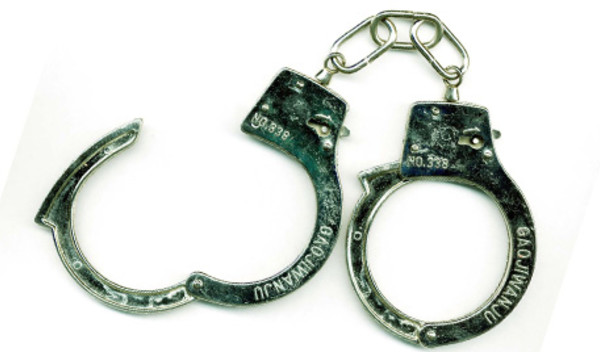

A financial adviser who forged investment documentation relating to his clients has been sentenced to seven years in prison.
Martin Rigney, 68, invested his clients into a high-risk, unregulated collective investment scheme at a time when most of them were elderly and this type of investment was not suitable for them.
The case came to the attention of police in June 2012 following an investigation by the Financial Conduct Authority into Rigney and his company Topps Rogers Financial Management.
Derbyshire Police took on the case and began a long and complex investigation.
Rigney, of King Edwards, Rivelin, Sheffield, was arrested and charged with forgery.
The 10-week trial at Derby Crown Court resulted in him being found guilty of 16 counts of forgery.
Detective Constable Julie Wheeldon, who led the investigation, said: “Martin Rigney committed abhorrent abuses of trust against his clients, who were consequently caused financial difficulty and emotional distress.
“Our thorough and lengthy investigation demonstrates how seriously we take this kind of offence.
“Today’s passing of a seven year sentence provides a significant deterrent to others that might think of defrauding trusting clients.”
In July FTAdviser revealed it was a son picking through his late father’s investment documents – rather than the regulator – that first flagged Rigney had forged his clients' signatures to pocket commission.
Tens of thousands of pounds of Rigney’s clients’ cash was lost after it was invested into a fund which was suspended.
Rigney used to trade under Topps Rogers Financial Management and his clients were generally retired and some have since died.
Their funds were invested in the Poland Geared Growth Property fund.
Clients were originally advised to invest via Royal Skandia bonds with a safe, non-risky spread of investments in various funds, before Rigney forged signatures and switched investments to the Polish fund.
During the 10-week long case prosecuting barrister Martin Hurst stressed the latter fund was an unregulated collected investment scheme and unsuitable for the vast majority of Rigney’s clients who required safe, non-risk investments to help pay school fees, cover the cost of nursing homes or to provide money to live on.
Mr Hurst said this kind of product could only be marketed to high-net worth individuals and was completely unsuitable for Mr Rigney’s clients.
He claimed money originally placed into a Royal Skandia bond and then into the Curzon Capital Investment Poland Geared Growth fund yielded £371,149 as Rigney’s commission income for advising people to go into the Polish fund.
But the Polish fund was suspended in 2008, nobody could get their money out and they lost their cash, according to Mr Hurst.
Mr Hurst said: “Mr Rigney was not concerned about getting clients to sign documents and he would sign them on their behalf. Signing them or forging their signatures on letters telling him what to do or on documents about knowing your client.”
He added: “The reason, the prosecution say he was forging clients’ signatures, was to hide from them what he was doing.
Rather than the regulator first spotting his activities and reporting it to the police, FTAdviser revealed Derbyshire Police’s investigation of Rigney – an adviser who had worked in the industry for more than 20 years - began when a complaint was made to West Yorkshire Police in June 2012 by the son of a couple of his clients.
The son, whose father had recently died, was concerned because he had noticed some of his parents’ signatures were “not quite right” on the documentation they had received from Mr Rigney since 2006.
The son also noticed an investment was taken out and put in both his father’s and mother’s name two weeks after his father had died.
As Rigney was based in Derbyshire, the complaint was forwarded by West Yorkshire Police to Derbyshire Police in June 2012 and Detective Constable Wheeldon was put in charge of checking on his activities.
emma.hughes@ft.com



